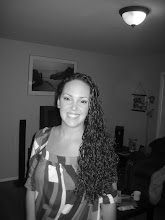“The College Writer”: Chapter 11 – Description and Reflection – Exercise
“Call Me Crazy, But I Have To Be Myself” – Reading for Better Writing – Page 159-160
1. What purpose does Seymour identify for writing the essay? What other purposes might be served by publishing this piece for Newsweek’s readers?
Seymour states the reason why she is writing this essay is to tell about and show who her “true” self is. She is tired of hiding part of herself from the world. By publishing this piece in Newsweek, readers with the same issue may realize that they are not alone; that there are people with the same bipolar disorder and that it is possible to live a normal life. It is possible for a person with bipolar disorder to be a functioning part of society. There are many things that can help; medication, therapy, etc.
2. The writer starts with one category label for herself (“mentally ill”) and then quickly adds another (“functional member of society”). How does this second label redefine the first?
I think by identifying herself as both mentally ill and a functioning member of society shows that there are different levels of the “mentally ill”; just because you have a disorder of the mind does not mean that you are less than. I think that when you first read her first label of “mentally ill”, you think of a crazy person who is incapable of anything but being crazy. Then you she labels herself as a “functional member of society” you feel like she becomes more of a “normal” person; a person in which everyone can relate to.
3. Description is used to support many other kinds of writing, including the types of analytical and persuasive writing outlined here in The College Writer. In what other chapters could this essay have been included, and how do you know?
I think this essay could also be included in chapters regarding narrative, descriptive, reflective, analytical and persuasive writing. This is already apart of the narrative, descriptive and reflective chapters. The reason I think it can be in the chapter regarding analytical writing is because the author, Seymour is analyzing herself and her situation is this essay. I have yet to read the analytical writing chapters, but I will assume that will be the directions given, is to analyze. The reason I see this essay fit for the chapter on persuasive writing is because the author is sort of persuading you to see that a person with a mental disorder can still be considered a normal functioning part of society. She is taking a position and asking the readers to see that position too. This essay could probably also go into the report writing chapter and the research chapter if some more information was added. Like if the author of this essay had added some experiments, field reports, or added some research done on people with bipolar disorder in society.
4. Review the section of this book on “Editing and Proofreading” (pages 83-98), especially the portion on biased words. Why does Seymour use the phrase “call me crazy”? Is her use of the word biased or insulting? Explain.
I believe Seymour used the phrase “call me crazy” because she feels like people may perceive her that way for telling her story or that bipolar disorder means that a person is “crazy.” I personally don’t think her use of the word “crazy” is showing a bias or being insulting, but according to the “Editing and Proofreading” pages in this book, it may be a biased word. On page 95, it talks about words referring to conditions. The word “crazy” is not on the list, but the book does say, for example, you should not write “cripple”, but instead write, “person who has difficulty walking.” So after seeing that, maybe Seymour should have said something like, “a person with a mental disorder” or something close to that. But for me personally, I took no offense to the word “crazy.”
Subscribe to:
Post Comments (Atom)

No comments:
Post a Comment